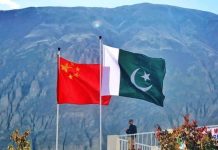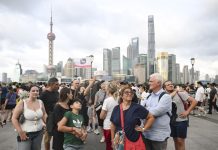Official: Judges under constitutional duty to adjudicate cases impartially
Hong Kong’s judicial independence remains intact after the implementation of the National Security Law for Hong Kong, and foreign accusations and smear campaigns in this regard are totally baseless, Secretary for Justice Teresa Cheng Yeuk-wah said.
Her remarks came as the Supreme Court of the United Kingdom announced the withdrawal of all of its serving judges from Hong Kong’s Court of Final Appeal, which is the special administrative region’s top court. The British Parliament also alleged that Hong Kong’s judicial independence has been affected by the security law’s enactment.
“The National Security Law does not in any way affect Hong Kong’s judicial independence, which is guaranteed in the Basic Law,” Cheng said in an exclusive interview with China Daily.
The Basic Law ensures the security of tenure of judges, and offers them immunity from legal action in the performance of their judicial functions. Article 85 of the law also stipulates that the courts exercise judicial power free of any interference. These arrangements have not been affected at all since the implementation of the National Security Law.
She added that although the National Security Law stipulates that the chief executive can appoint designated judges to handle national security cases, the judges remain under the constitutional duty to adjudicate the case independently and impartially, and the judiciary remains responsible for assigning the judges to different cases.
In addition, there are also well-established legal mechanisms to ensure the impartiality of judges, the transparency of trials and the protection of defendants’ legitimate rights, she said.
Echoing Cheng, a spokesperson for the Hong Kong SAR government also stressed that Hong Kong’s judicial independence remains as robust as ever, and expressed strong opposition to the British Parliament’s unfounded allegations.
In the interview, Cheng said that under the National Security Law, the Hong Kong SAR is responsible for handling most of its cases related to national security.
Such cases are usually handled by the central authorities in unitary states, or the federal government in a federal state. China is a unitary state, but the central government has authorized Hong Kong to investigate, prosecute and adjudicate such cases.
This actually shows a strong determination to apply the “one country, two systems” principle, as well as the trust that the central authorities have placed in the Hong Kong SAR to handle these matters, Cheng said.
Amid the raging pandemic, many court cases have been delayed, including those involving national security and related to social unrest in the city in 2019. Cheng said the Department of Justice, the judiciary and law-enforcement agencies are doing what they can to expedite the cases’ handling and minimize the impact of the pandemic.
She revealed that a trial related to violent incidents at Hong Kong Polytechnic University in November 2019 will soon begin.
Cheng stressed that since the National Security Law came into effect in June 2020, Hong Kong has moved from chaos to stability and prosperity, which is reflected in restored social order, robust stock and IPO markets, and a thriving business environment. -The Daily Mail-China Daily News Exchange Item





